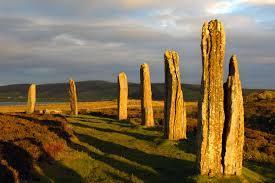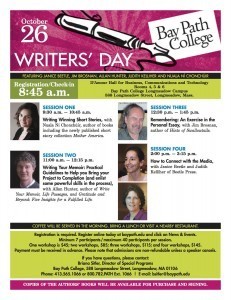Allan G. Hunter's Blog, page 63
November 14, 2013
Upbringing
I was brought up in a rather goal-oriented family. You did something, and then it was done. You said something once and it was said. A task was taken on and completed. Rules were rules.
For years I thought that was the way the world worked.
But it doesn’t. Things may get done, but then they need to be done again and again and again. Entropy kicks in, and things break, wear out and change. But most of all agreements tend to erode. They need to be re-negoiated, and re-thought – on occasions rather frequently. Attitudes change; laws change. Everything changes.
Every agreement needs to be revisited, perhaps more often than we might like to think.
The trouble is that as we get older we sometimes don’t want to do that.
The trouble is that some people are so desperate for certainty that they can’t see this basic truth.
November 4, 2013
Shakespeare and Life
One of the advantages of teaching literature is that one gets to look at superb writing and then see if it applies to your own life. I encourage my students to do this, of course, and often they get great “ah ha” moments as a result.
And I do the same thing for myself. So recently I went to Shakespeare’s play “The Tempest” because I was having a little trouble getting my head around certain aspects of life. It’s Shakespeare’s last play, and some say it’s his very finest.
The problem that worried me was exactly what Shakespeare describes: that every so often we run across a work colleague, perhaps, who wishes to change a friendly relationship into one of exploitation and even downright dishonesty. You know how it is: your brother-in-arms rips off your idea and gets promoted for it. Or perhaps your sister-in-arms rips off your budget, stupidly destroying a whole grant giving ecosystem that brought in thousands of dollars a year, just because she felt she had to be the one in charge. That sort of thing.
Shakespeare’s advice is not straightforward, since he shows us a man, Prospero, who struggles with not avenging himself in anger, even though he can. Instead Prospero places his trust in love and forgiveness. And as we watch the play we see just how difficult it actually is to let go of power and remote mastery and give away everything for the sake of peace. Some of the characters have to be exposed as knaves and fools, and they don’t change. But the main one does: Prospero recognizes the fragility of being in a place of love and trust and he goes ahead, anyway, because living with suspicion and revenge is just too hard. Even Alonso sees the error of his ways and changes. Two out of six isn’t bad, I suppose.
No one said this world would be easy.
October 25, 2013
The Stories We Tell Ourselves
We tell ourselves stories all the time, varying from “that’s just my luck” to the deeper less-acknowledged and sometimes self-sabotaging stories we’re barely aware of.
Thinking about the stories I was and still am drawn to, I notice that part of me is intrigued by tales (usually biography or memoir) in which the person bravely goes forward to do something that is doomed to failure, yet out of the resultant debacle something good emerges, something other than the original intent.
I was drawn, for example, to my father’s life story. He was in the RAF in WW2 at a time when men and planes were sent off to do impossible deeds and most of them didn’t survive, let alone succeed. He did survive, though, much to his surprise. He then had to work out a way to live a life in peacetime, in a world he found alien. He did this, more or less, but the traumatic stress never left him.
Unconsciously I took on this paradigm, at some deep level. I interpret aspects of my life as if this actually were my tale. In making it my story I’ve, perhaps, ignored a different story, and I’m sure my unconscious has been trying very hard to make sure I confirm this myth. In many ways it succeeded in that. I spent many years seeing my life as a series of lucky escapes just before everything went to hell.
But I can change this. I can choose a different story. I do not believe that everything is just about to go to hell. I believe we have much more productive work to do, all of us, and that we can do it.
But first we have to make sure we don’t believe a story that isn’t, in fact, ours.
So, what’s your story?
October 12, 2013
Recent Blogs, and Thinking
For the past few weeks I’ve been posting on Twitter (AllanGHunter1 is my handle) in the hope that those of us who have busy lives will be able to take a quick snippet of thought away for the day, and mull it over. So I’ve been doing less of the Blog – which after all probably requires more reading time. Time is something we don’t have much of. Worse yet is that time to think is lacking.
And that’s the key. We are all busy to the extent that we often don’t have time to reflect deeply on ideas and notions. We have to drive in heavy traffic, or we shut out the noise of others on public transportation by putting in our ear buds, or we’re assailed by musak. We don’t have quiet time any more – or most of us don’t.
Perhaps that’s what’s missing.
September 29, 2013
Points of Power
We all have them. They’re those things you find that you can do that also bring you prestige. You might find you’re good at soccer or needlework and that it brings you Kudos – even if you prefer playing tennis or something else.
So most of us tend to find our talents and match them to their worth in the public sphere. We develop them – and these are our power points.
The only flaw in the whole thing is that we may choose to grow those attributes that bring us power and admiration and ignore those talents we truly love doing for our own sake. And so we become, if we’re not careful, estranged from our authentic selves.
May all your power points be authentic to who you are.
September 24, 2013
Standing Stones and Cathedrals
I often used to wonder why the ancient peoples of Europe chose to leave rough standing stones as monuments, especially when I compared these boulders with the grace of cathedrals that came later. Obviously – the logic went – these ancient and unrefined peoples had no real knowledge of stone and working it, and anyway they had low standards. Question answered.
But what if it wasn’t that, at all? The early inhabitants of Europe could produce large hill forts and even actual hills (think of Silbury Hill in England), so why not something closer to the temples we see elsewhere in the world? So here is a thought to consider: finished temples require a large amount of upkeep. They have to be repaired and looked after, regularly, at vast expense. Just ask anyone who has a church nearby and has seen the appeals for money for repairs.
A large, rough standing stone requires no such upkeep. In fact it seems to mock the prettiness of chiseled stone arches. It seems to say – This is unapologetic Nature, just as God is the force of that Nature. The stone may decay, it may not; it is part of the power of Nature.
And sure enough, several thousand years later many of those stones are unchanged while the forum at Rome is full of ruins.
Those gaunt rocks defy prettiness and our attempts to make the powerful forces of our world seem small, controlled, and man-made. When the Celts worshipped sacred sites, like rivers, they connected to a vast vital sense of the universe. How they must have been disappointed by the small piles of stones and mortar that were the early churches! It must have seemed like the difference between the Alps and a dog kennel.
September 22, 2013
The Wheel of Time
Ten years ago I struggled to put my father’s memoir of his war years into shape and it became “From Coastal Command to Captivity”. In the intervening years I had contact with all kinds of other people who were also writing about World War Two prisoners, striving to tell the stories that the world had overlooked.
Along the way I made contact with Robert Laplander and was able to supply him with some small bits of information. He has now produced the best-researched and most readable text on the Wooden Horse Escape (which my father was a small part of). I’m delighted to say that Robert’s superb book has just been accepted by Pen and Sword publishers – the premier publisher of military books in the UK.
The aim in this is not to glorify war, but to point out the indomitable strength of human nature required when resisting tyranny, when creating peace. We can all learn from that.
And so we can see that every effort we make has a knock-on effect, even if it takes ten years, or perhaps more.
September 16, 2013
Writers’ Day — Save the Date
September 13, 2013
Humanities…. and real life.
 I’ve spent my life working within that ill-defined area called “Humanities”, which translates into reading lots of Literature and seeing how it can instruct us about life. I believe with my whole being that reading great literature can open up questions and discussions that help us to become more human, compassionate and loving. In other words, Humanities can help us be more human.
I’ve spent my life working within that ill-defined area called “Humanities”, which translates into reading lots of Literature and seeing how it can instruct us about life. I believe with my whole being that reading great literature can open up questions and discussions that help us to become more human, compassionate and loving. In other words, Humanities can help us be more human.
But this is an unfashionable belief today in many areas of higher education and public schooling, places where skills are seen as coming first and compassionate thinking and feeling as very much second. This is neither wrong nor right, good nor bad. It just is.
And yet– vital as the Humanities were to me I can see any day I choose to that they are not the only way forwards. Of recent years I have come to know many people who do not do much reading at all, let alone take college courses about Literature (with a capital L) and many of them are the most wonderful human beings I have ever met. I learn much about life from them and their children and the way the interact lovingly – lessons I cannot get from a book.
I don’t think we should abandon Humanities, but I think some of the values it teaches can be learned in other ways. But then — that would ask us to value a particular way of being that is not quite as common as we think it is.
September 5, 2013
Redwoods and you

It turns out that those mighty Redwoods we all hear about get their vital nutrients, like useable nitrogen, from just one source – lichens. The litter of dead lichens that falls to the forest floor is not merely refuse – it’s the very thing that makes Redwood trees possible.
Not all of us can be towering Redwoods. Most of us are going to be useful and make a difference simply because we keep doing what we believe, humbly, and with love. Putting our time and effort in without any overblown ego expectations — that has real dignity. Lichens matter, too.






